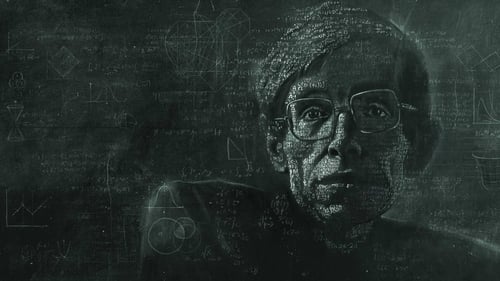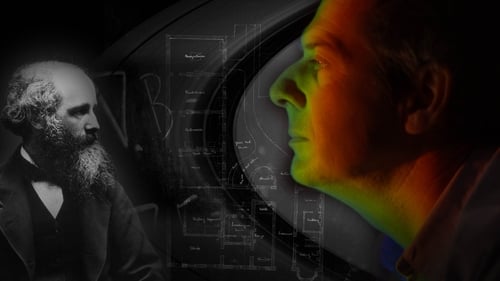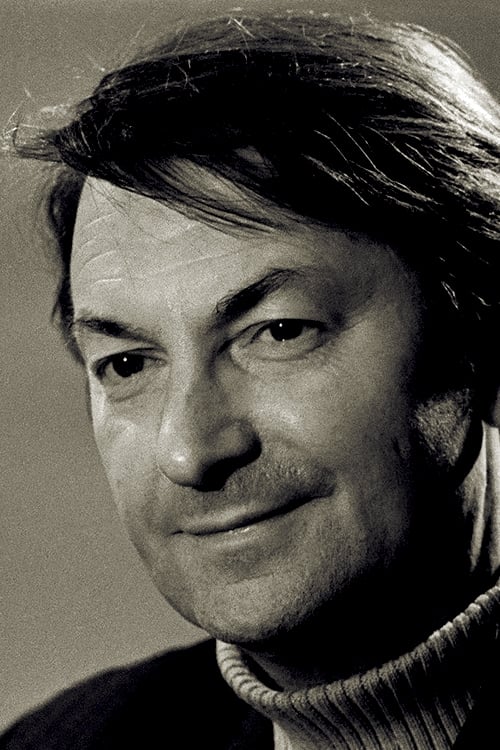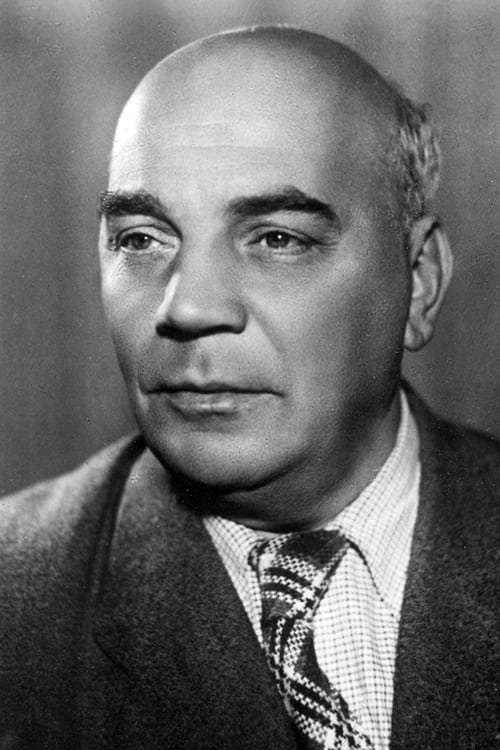What is the Theory of Relativity? (1964)
Género : Documental
Tiempo de ejecución : 20M
Director : Semyon Raytburt
Escritor : Semyon Lungin, Semyon Raytburt
Sinopsis
In a compartment of the Moscow-Novosibirsk train, a young physicist meets famous film actors. The conversation accidentally comes to Einstein, and the woman begins to explain to her fellow travelers what the theory of relativity is. The actors are incidentally on their way to the shooting of a film about physicists, but they do not understand the subject at all.

Particle Fever sigue la historia de seis brillantes científicos que tratan de desentrañar los misterios del universo, documentando los éxitos y los fracasos en el avance científico más significativo e inspirador del planeta.

Una película sobre la vida y obra del cosmólogo Stephen Hawking, quien a pesar de su parálisis casi total, es una de las grandes mentes de todos los tiempos.

La nominada a los Premios de la Academia Cosmic Voyage combina acción en vivo con imágenes generadas por computadora de última generación para identificar dónde encajan los humanos en nuestro universo en constante expansión. Resaltando este viaje hay un "zoom cósmico" basado en los poderes de 10, que se extiende desde la Tierra hasta las estructuras más grandes observables en el universo, y luego regresa al reino subnuclear.

Todo el mundo conoce al científico Stephen Hawking pero este no es un documental sobre ciencia, es un documental sobre la persona que se escondía tras ella. Un retrato que va más allá de estereotipos y muestra a un hombre profundamente humano, divertido y testarudo, capaz de mostrar a los suyos un inmenso amor, pero también una dolorosa indiferencia.Por primera vez, sus más allegados (incluidos sus hijos, su exmujer Jane y su hermana) hablan sin tapujos del genio, de la persona real que había detrás de su imagen pública. Estas entrevistas y un increíble material de archivo familiar nunca antes visto ponen el foco en la vida personal de Stephen Hawking, mostrando el tremendo impacto que su fama y su discapacidad han tenido en las relaciones con los suyos. Un recorrido por la vida del físico de la mano de los que mejor lo conocieron. Un retrato fascinante y honesto de una de las figuras más respetadas y conocidas de la historia.

This series also covers the essential concepts of astronomy: gravity, the light spectrum, Earth's magnetic field, the solar system, the sun, Kepler's Law, the universal law of gravitation, the Doppler Effect, and much more!

Almost one hundred years ago, the project to reduce the world to mathematical physics failed suddenly and completely: “One of the best-kept secrets of science,” physicist Nick Herbert writes, “is that physicists have lost their grip on reality.” The world, we are now told, emerges spontaneously, out of “nothing,” and constitutes a “multiverse,” where “anything that can happen will happen, and it will happen an infinite number of times.” Legendary reclusive genius Wolfgang Smith demonstrates on shockingly obvious grounds the dead end at which physics has arrived, and how we can “return, at last, to the real world.” The End of Quantum Reality introduces this extraordinary man to a contemporary audience which has, perhaps, never encountered a true philos-sophia, one as intimately at ease with the rigors of quantum physics as with the greatest schools of human wisdom.

With extraordinary access, BLAST exposes a world of risky, hardcore, scientific adventure. The story follows an international team of astrophysicists trying to launch a multi-million dollar telescope on a NASA high-altitude balloon. Their journey to discover thousands of early galaxies takes them from the Arctic to the Antarctic. Revealing frustrations, inevitable failures and ultimate triumph, BLAST puts a human face on the quest to answer our most basic question - How did we get here? (IMDb)

Twenty years after A Brief History of Time flummoxed the world with its big numbers and black holes, its author, Stephen Hawking, concedes that the "ultimate theory" he'd believed to be imminent - which would conclusively explain the origins of life, the universe and everything - remains frustratingly elusive. Yet despite his failing health and the seeming impossibility of the task, Hawking is still devoted to his work; an extraordinary drive that's captured here in fleeting interview snippets and footage of the scientist sharing a microwave dinner with some fawning PhD students. Though the pop-science tutorials that dapple the first of this two-part biography are winningly perky, Hawking, alas, remains as tricky to fathom as his boggling quantum whatnots


Lawrence Krauss gives a talk on our current picture of the universe, how it will end, and how it could have come from nothing. Krauss is the author of many bestselling books on Physics and Cosmology, including "The Physics of Star Trek."

This Metaphysical Dark Action Comedy "A MAN CALLED NEREUS" is the debut feature of writer/director Nathan Hill, for Armored Vision. Nereus is an autistic man who is being held captive by the Filaria crime family due to his unique ability to predict the exact outcome of sporting events through time travel. However, this all changes the moment he is kidnapped by a junkie who plans to take him to Las Vegas. Now on the run, the two must weave through madmen, corrupt law enforcement and new-age terrorists.

CERN, the world's largest physics laboratory, is also a society in itself. A mythological microcosm and science's answer to the Tower of Babel, with its many thousand employees as an indispensable element among cables and computers. The researchers speak the same esoteric and nerdy language. But their physical trials are not the only experiments in the human anthill. CERN is also a utopian experiment in collaboration across cultures, where the world's most advanced technology meets the world's sharpest—and some of the quirkiest—minds.

The Future Circular Collider is the machine of the future. Thanks to it, we will finally be able to go back in time to the origin of our universe. But which way do we go to set up the largest scientific instrument of all time? Between metaphysics and underground tunnels, a story of the preparations or how men are ready to move mountains for more knowledge.

Professor Iain Stewart reveals the story behind the Scottish physicist who was Einstein's hero; James Clerk Maxwell. Maxwell's discoveries not only inspired Einstein, but they helped shape our modern world - allowing the development of radio, TV, mobile phones and much more. Despite this, he is largely unknown in his native land of Scotland. Scientist Iain Stewart sets out to change that, and to celebrate the life, work and legacy of the man dubbed "Scotland's Forgotten Einstein".

Physics is a system of models of nature according to which all phenomena are explained in terms of matter and force. Sound confusing? It doesn't have to be! Whether you need help with high school physics, need to review for a college physics class, or you're studying for the AP Physics Exam, this physics tutorial will help you understand the basics, such as Newton's Laws, the Law of Universal Gravitation, Kepler's Law and more.

Richard Feynman was a scientific genius with - in his words - a "limited intelligence". This dichotomy is just one of the characteristics that made him a fascinating subject. The Pleasure of Finding Things Out exposes us to many more of these intriguing attributes by featuring an extensive conversation with the acclaimed Nobel Prize winner. During the course of the interview, which was conducted in 1981, Feynman uses the undeniable power of the personal to convey otherwise challenging scientific theories. His colorful and lucid stories make abstract concepts tangible, and his warm presence is sure to inspire interest and awe from even the most reluctant student of science. His insights are profound, but his delivery is anything but dry and ostentatious.

In a compartment of the Moscow-Novosibirsk train, a young physicist meets famous film actors. The conversation accidentally comes to Einstein, and the woman begins to explain to her fellow travelers what the theory of relativity is. The actors are incidentally on their way to the shooting of a film about physicists, but they do not understand the subject at all.

In Astronomy Part 2, you will learn all about the planets, asteroids, comets, meteoroids, the layers of the sun, fusion, and more. The Standard Deviants make learning astronomy easier with their unique teaching style, which incorporates humor, mnemonics, and sophisticated computer graphics.
















